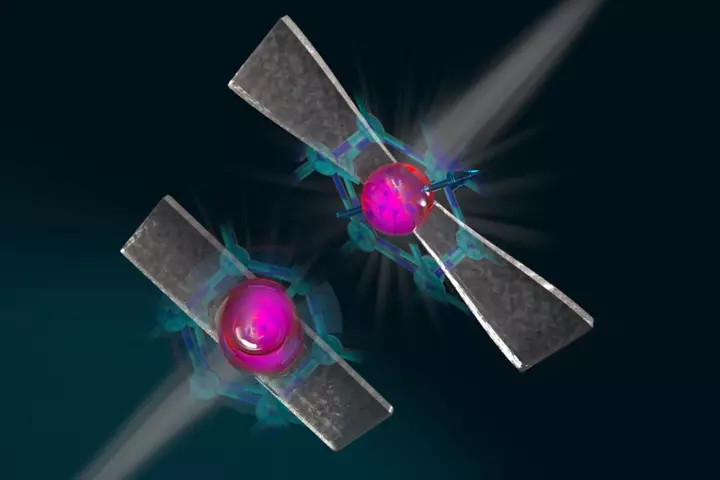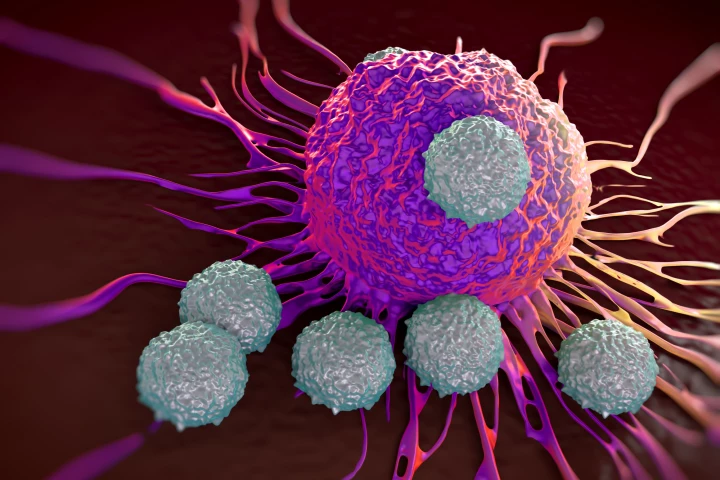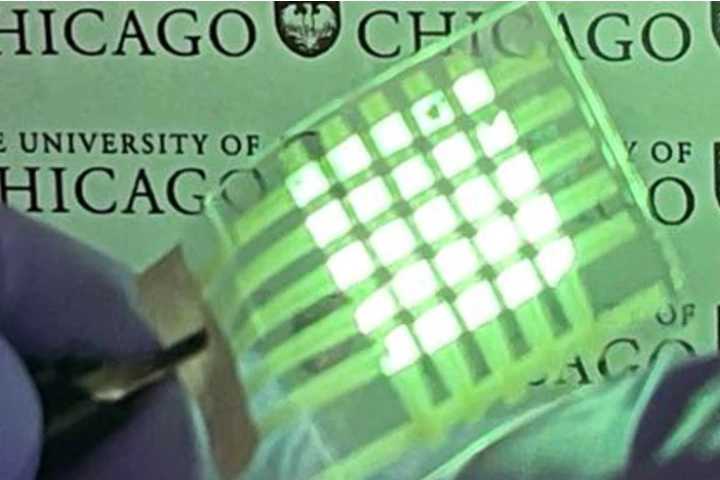University of Chicago
-
Antibiotics can be literal lifesavers, but they are particularly hard on the gut thanks to their indiscriminate destruction of both good and bad bacteria in the body. New research shows a possible way to fight their negative effects based on diet.
-
As more bacteria become increasingly resistant to antibiotics, we need more ways to fight infections. That's where this new patch comes in. With a gentle electric zap, this wearable could prevent bacteria from doing a number on us through our skin.
-
A new pacemaker is thinner than a human hair, wireless and operated entirely by light from an optic fiber. The non-invasive device could help regulate heart activity or even stimulate neurons in a set pattern to treat conditions like Parkinson’s.
-
The debate rages on about the identity of fossils of small tyrannosaurs. A new study claims to have found evidence that a mini tyrannosaur species stomped around alongside its famous, giant cousin – but other scientists aren’t convinced.
-
Researchers are claiming a breakthrough in quantum communications, thanks to a new diamond-stretching technique they say greatly increases the temperatures at which qubits remain entangled, while also making them microwave-controllable.
-
A study has found that a fatty acid found in meat and dairy may boost the cancer-killing abilities of the immune system’s T cells. Also found to enhance the effectiveness of immunotherapy, the nutrient could be used to complement cancer treatments.
-
In recent years, we've heard about navigational systems which guide pedestrians via vibrating actuators in their shoes. The FeetThrough system takes a different and reportedly better approach, by actually shocking the soles of the feet.
-
An ‘inverse vaccine’ has been developed that reverses the damage caused when the immune system mistakenly attacks the body’s healthy organs and tissues. It could pave the way to a treatment for autoimmune diseases like MS, type 1 diabetes and arthritis.
-
Scientists have detected the first evidence of a phenomenon called “quantum superchemistry.” Long predicted but never confirmed, this effect could speed up chemical reactions, give scientists more control over them, and inform quantum computing.
-
Researchers have developed a new OLED display that can be stretched to more than twice its length while still maintaining light emission and a clear image. The development opens the door to a wide range of wearable electronics.
-
Creative AI is pure theft, according to many artists, scooping up and subsuming styles and techniques that may have taken years to develop. Glaze offers something of a solution – a "cloaking" layer specifically designed to ruin AI-attempted imitations.
-
Astronomers have put together one of the most comprehensive maps of all the matter in the universe. The huge undertaking hints at a slightly smoother universe than we thought, suggesting that something might be missing from our models.
Load More











